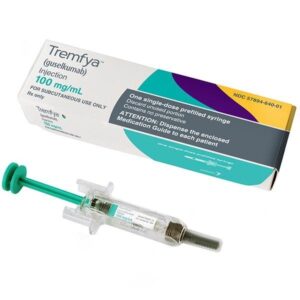ozempic australia
ozempic australia
vOzempic (semaglutide) is a GLP-1 receptor agonist used for managing type 2 diabetes. This medication enhances insulin production and aids in weight management. The recommended starting dosage is 0.25 mg weekly, increased to 0.5 mg for optimal control. Understanding potential overdose symptoms like severe nausea and dizziness is crucial for patient safety. Regular communication with healthcare providers helps ensure effective treatment and management of diabetes. Learn how to use Ozempic safely and its potential side effects.
Description
ozempic australia
Understanding Ozempic: Dosage Guidelines and Overdose Risks
What is Ozempic and Its Recommended Dosage?
Ozempic, whose generic name is semaglutide, is a prescription medication primarily utilized in the management of type 2 diabetes. It belongs to a class of drugs known as glucagon-like peptide-1 (GLP-1) receptor agonists, which work by mimicking the actions of a naturally occurring incretin hormone. This mechanism prompts the pancreas to increase insulin production in response to elevated blood sugar levels. Additionally, Ozempic slows gastric emptying, contributing to enhanced satiety and reduced caloric intake, which can aid in weight management for individuals diagnosed with obesity or those with type 2 diabetes.
The recommended dosage of Ozempic varies depending on individual patient needs and clinical response. Typically, treatment begins with an introductory dose of 0.25 mg once weekly for the first month. This initial dosage allows the body to acclimate to the medication while minimizing potential gastrointestinal side effects. After one month, the dosage may be increased to 0.5 mg once weekly, which is often deemed the standard maintenance dosage for optimum glycemic control. Should additional blood sugar management be necessary, healthcare providers may escalate the dosage further to a maximum of 1 mg per week.
It is crucial that patients adhere to these dosage guidelines to achieve effective therapeutic outcomes with Ozempic. In adjusting the dosage, healthcare practitioners will consider various factors including the patient’s blood glucose levels, weight loss objectives, and any side effects experienced during treatment. Regular follow-ups are essential to monitor the patient’s condition and to make necessary adjustments based on a comprehensive assessment, thereby ensuring the prevention of potential complications associated with inadequate dosing or medication misuse.
Understanding Ozempic Overdose: Symptoms and What to Do
Ozempic, a medication commonly prescribed for the management of type 2 diabetes, can pose risks if used improperly, particularly in the event of an overdose. Recognizing the symptoms of an Ozempic overdose is crucial for timely intervention and ensuring patient safety. Typical symptoms of an overdose may include severe nausea, vomiting, abdominal pain, and dizziness. Patients might also experience rapid heartbeats or extreme fatigue. These symptoms generally arise from the medication’s mechanism of action, which affects insulin and glucose levels in the body.
If one suspects an Ozempic overdose, it is essential to assess the situation quickly and methodically. First, check for any immediate symptoms that may indicate an overdose. If symptoms are present or if there is uncertainty regarding the dosage taken, it is vital to seek medical assistance promptly. It is recommended to contact poison control or visit the nearest emergency department for evaluation and treatment. Medical professionals may perform blood tests and provide supportive care to manage the symptoms effectively.
Preventing an overdose begins with proper medication management, which includes adherence to prescribed dosages and schedules. Patients should maintain open communication with their healthcare provider regarding any changes in their health or medication requirements. Using a medication tracker or reminder system can further enhance adherence and reduce the risks associated with taking too much Ozempic. Furthermore, patients or caregivers should be educated about the potential signs of overdose, which can ensure that appropriate action is taken swiftly if needed.
Ultimately, understanding the risks associated with Ozempic, including the symptoms of overdose and the importance of medication management, empowers patients to use this medication safely and effectively. Always consult healthcare professionals for guidance tailored to individual circumstances.
ozempic australia,ozempic australia,ozempic australia,ozempic australia,ozempic australia,ozempic australia,ozempic australia,ozempic australia,ozempic australia,ozempic australia,ozempic australia,








Reviews
There are no reviews yet.